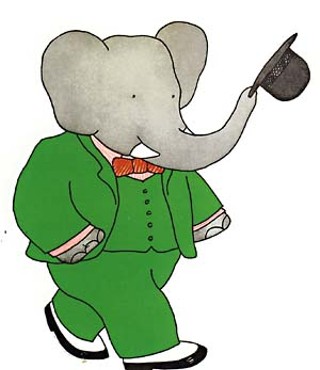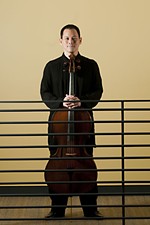Anton Nel, Piano, With Martin Burke, Actor
A tremendously memorable day of music that showed the breadth of Nel's skills
Reviewed by Michael Kellerman, Fri., Feb. 4, 2011

Anton Nel, Piano, With Martin Burke, Actor
Bates Recital Hall
Jan. 30
Anton Nel walked onto the spare stage of Bates Recital Hall in black pants and a bright, ribbon-candy striped shirt. He took his seat behind the sleek, black Steinway to the applause of a packed house, settled for a brief moment, and tore into Carl Philipp Emanuel Bach's 12 Variations on "Les Folies d'Espagne." Nel's attire befitted his forthcoming performance well, as he went on to present a full spectrum of tonal shades, from Bach to Poulenc, all with the lyrical sensitivity and laser-sharp technique of a master at work.
The C.P.E. Bach was a great way to get the audience into the mood. The piece's exciting and welcoming variations built to a brilliant climax, the final variation an impressive balance of point-perfect left-hand bass line and furious right-hand melodic material. Nel's fingers danced on the keyboard.
Next, Nel presented three of Claude Debussy's Preludes, all fine examples of the composer's moody, harmonically daring late works. Particularly memorable was "La Cathédrale Engloutie." Debussy originally placed the titles of his Preludes at the end of his pieces, so as to prevent his listeners from taking his inspiration too literally. Having heard the piece many times, however, I fell for it entirely and purposefully conjured the image: a foggy morning approach from the French countryside to a city, whose majestic Gothic cathedral remains shrouded until the last moments, when its tall spires and hulking presence suddenly loom above, an imposing facade to the spirit world. Far from the accessibility of the C.P.E. Bach, here Nel transported us to another place, showing great artistic range.
The first half closed with Beethoven's awesome "Waldstein" Sonata. Playing entirely from memory, just as with the previous pieces, Nel seemed to be driven by the piece rather than in control of it. This display of serene confidence hovers about the best of musicians and was a great gift to those listening.
Taken together, these works would have made for a full concert that was impressive. That they made up merely half is a testament to the breadth of Nel's abilities. For the second act, Nel was joined onstage by veteran Austin actor Martin Burke for Francis Poulenc's setting of L'histoire de Babar, le petit éléphant. I've never thought Poulenc's musical vignettes truly captured the story of Babar, but nonetheless the performance was magical, the pairing delightful, and on several occasions their interplay drew bursts of laughter from the audience. (I know this isn't a theatre review, but forgive me for using this occasion to say: Martin, you killed in Zach Theatre's The Drowsy Chaperone.)
For his last piece, Nel chose Frederic Chopin's sprawling Andante Spianato et Grande Polonaise Brillante. The title alone provides an accurate description for the piece, so I'll keep my commentary to this: Though the Polonaise that followed had an abundance of expertly executed virtuosic material, my mind kept returning to the opening moments. In order for its simple melody to drift effortlessly in the air, the Andante requires a delicate, unforced technique. With this composition, Chopin truly struck brilliance, which Nel matched with a singular, touching performance. It was the first time I'd heard the work live – yet another gift on this tremendously memorable day of music.










